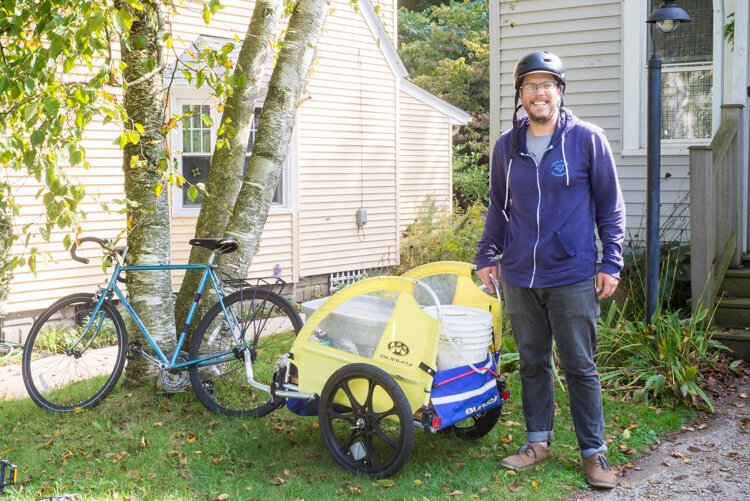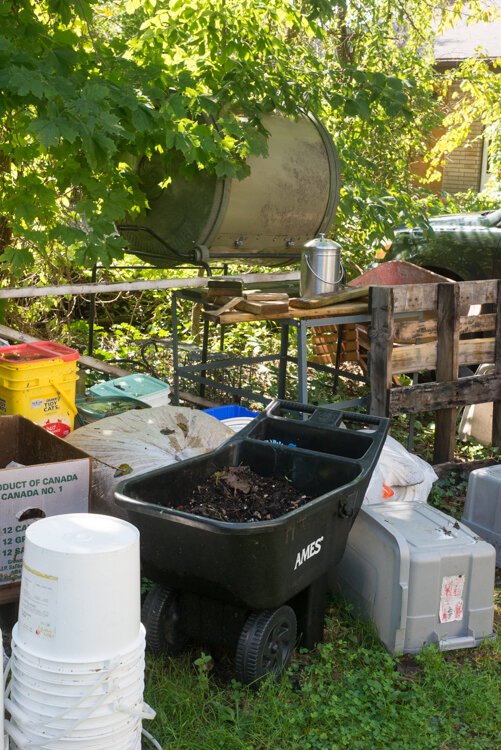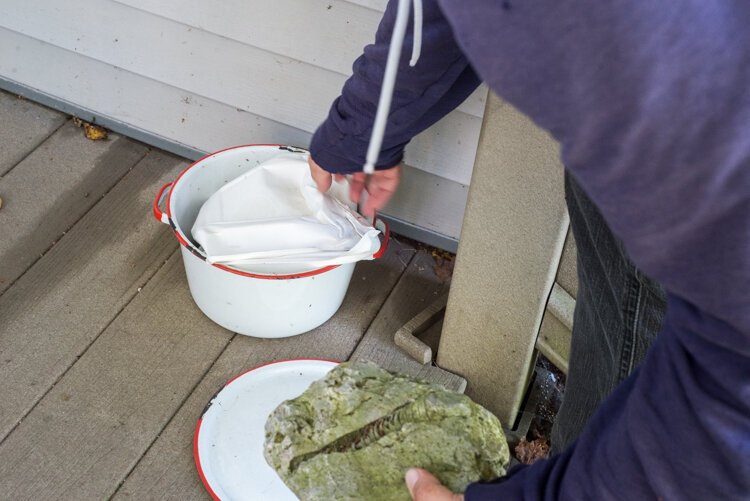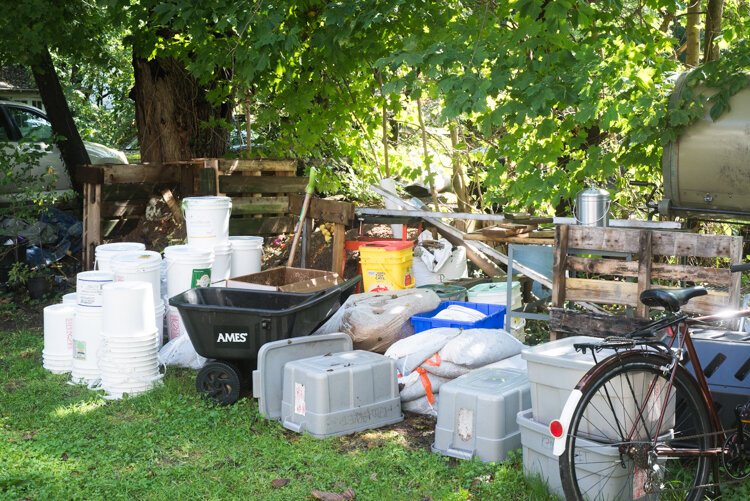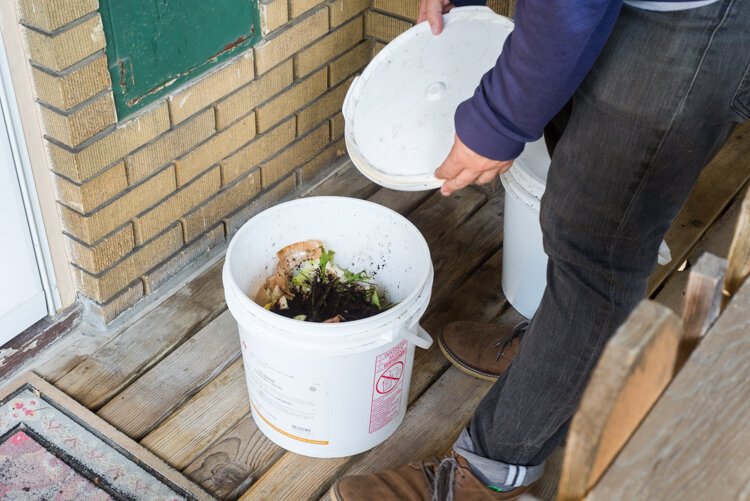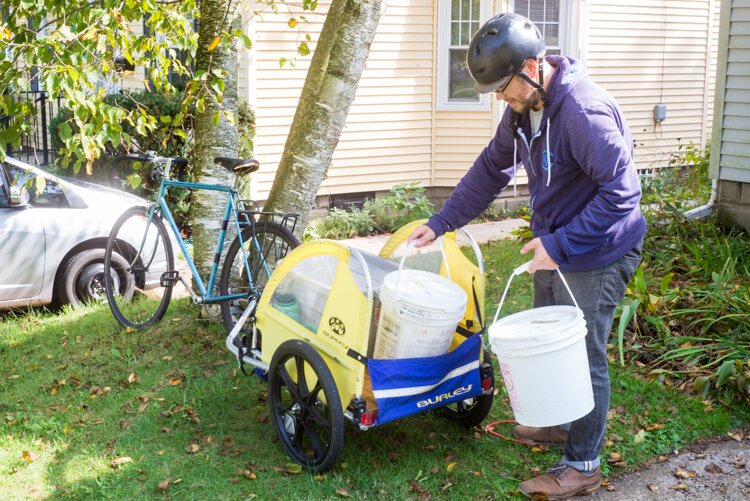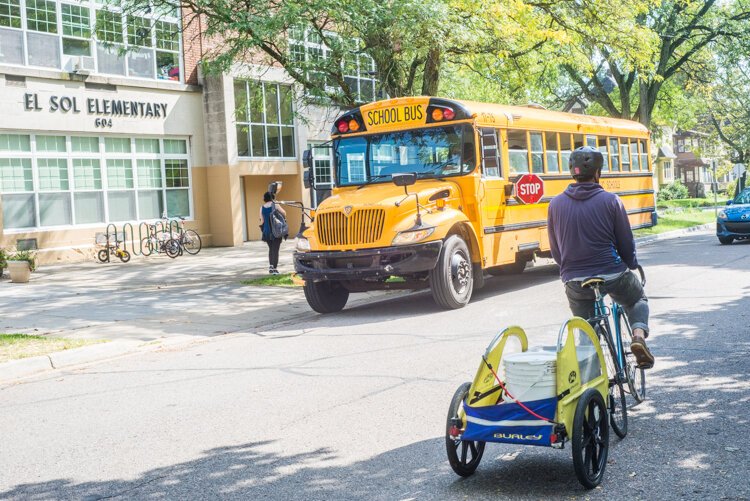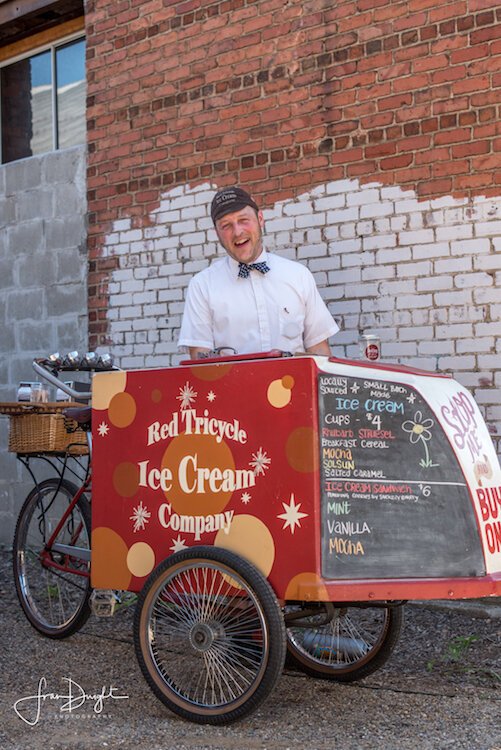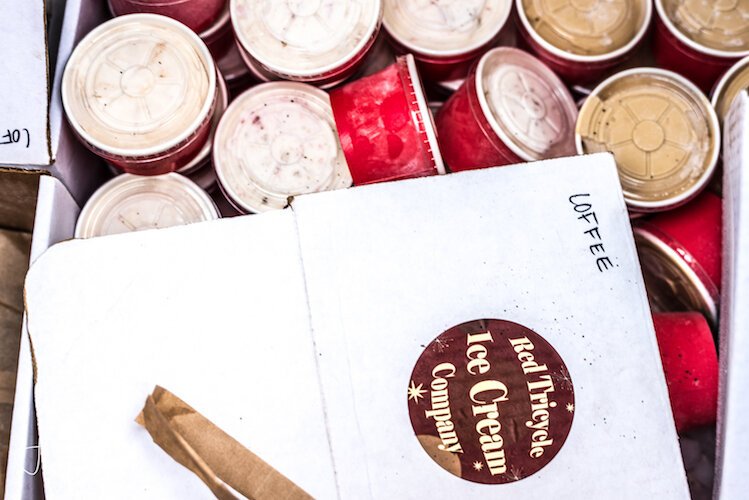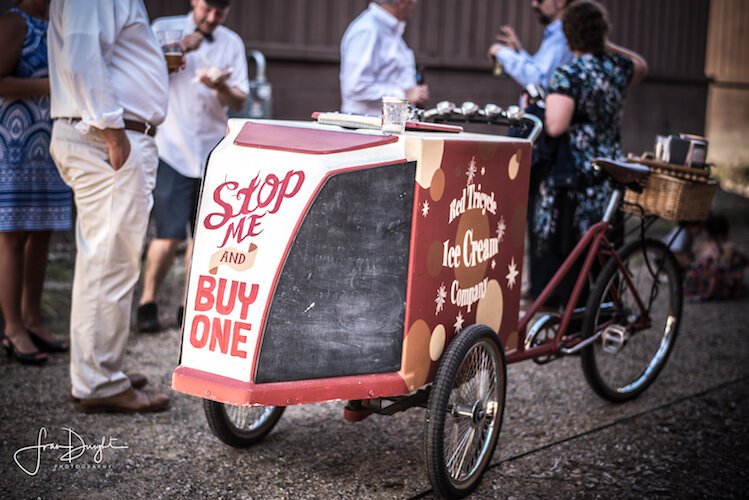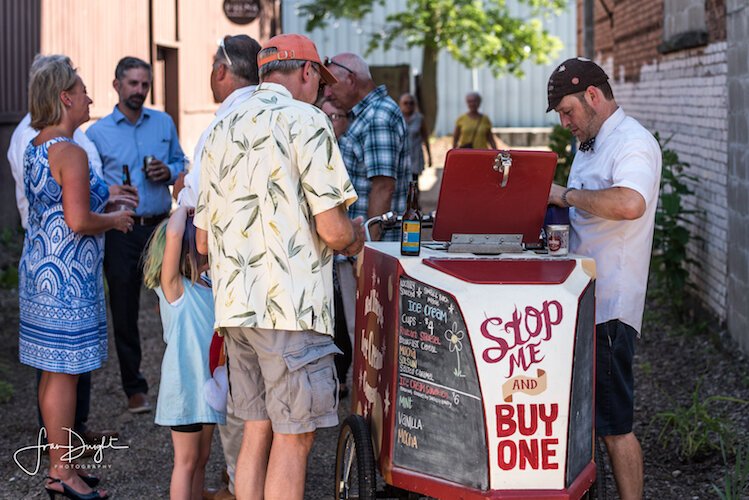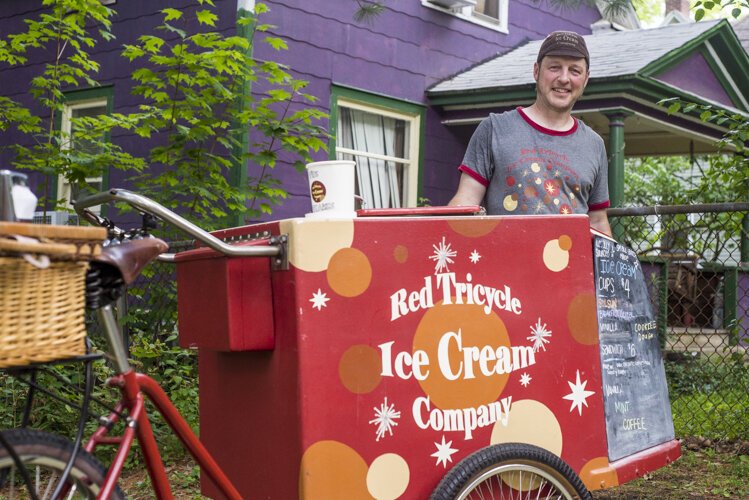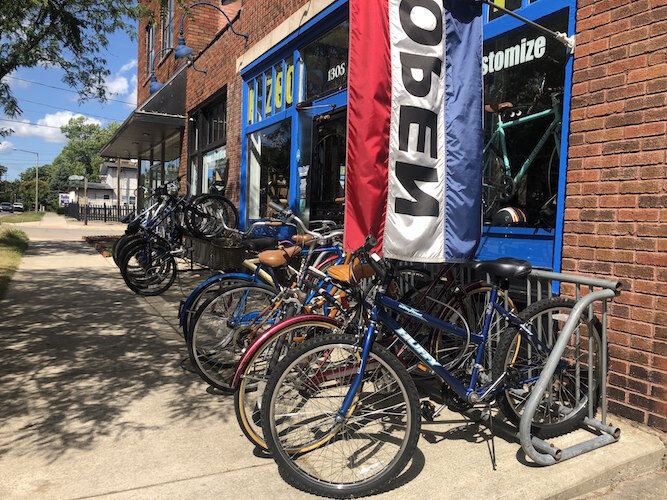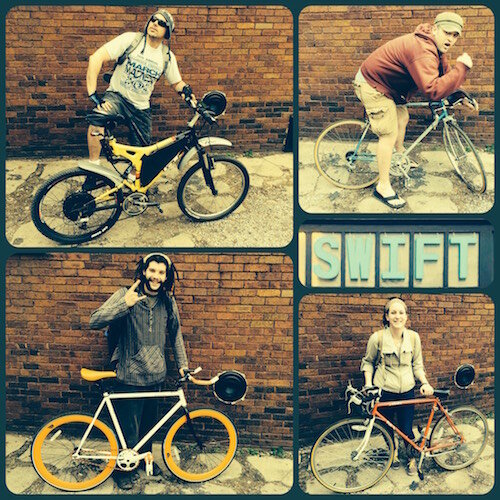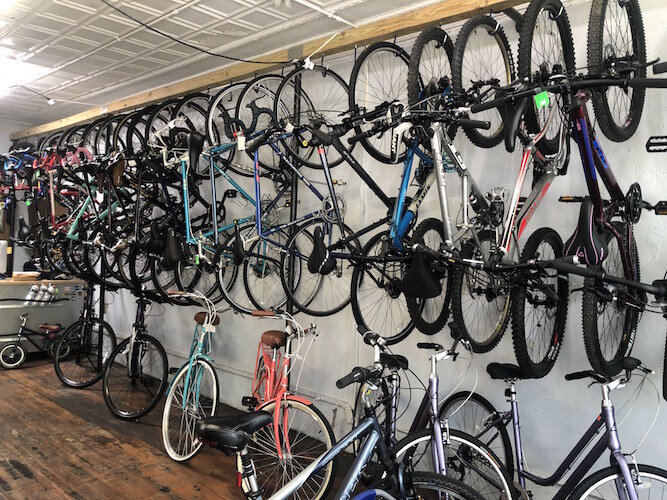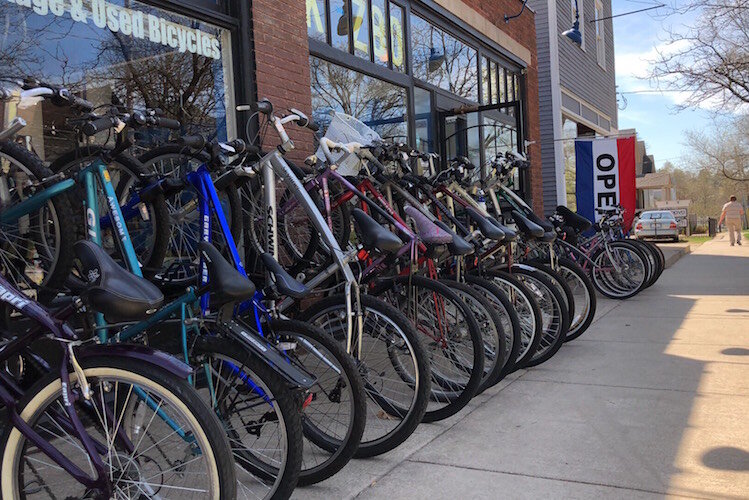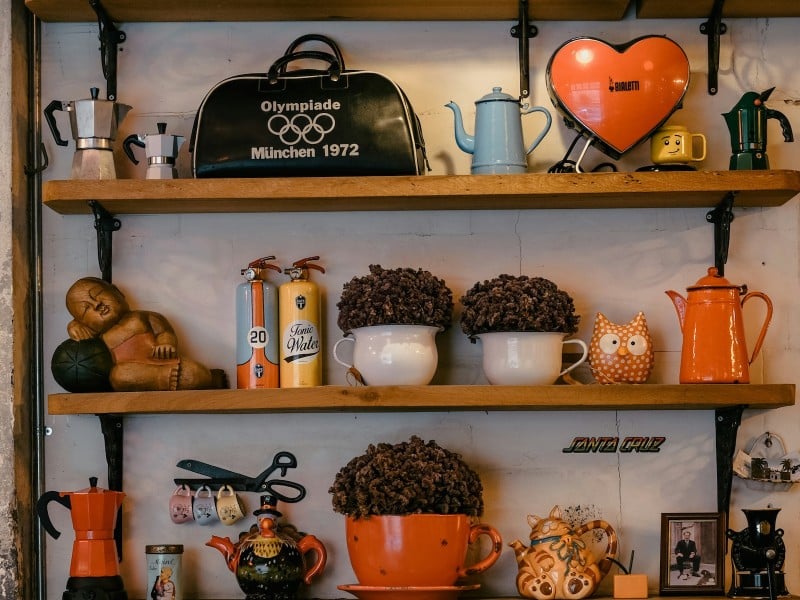Bicycle businesses in Kalamazoo’s Vine: Ice cream, compost and vintage rides
Three entrepreneurs in the Vine neighborhood have found ways to make their passion for bikes a part of their businesses. Meet the compost maker, the ice cream maker, and the bike rebuilder.
In large cities, food and package delivery and courier services by bicycle are a convenient way to outsmart traffic jams and urban parking challenges. In Vine, a neighborhood that has its fair share of bicycling enthusiasts, business on and about bicycles are a way to extend a passion for pedaling while having something to peddle.
For these three Vine bicycle business owners, it’s a win-win.
Composting in Kalamazoo? The Bike Farm will help
On Saturdays during market season, Chris Broadbent hooks up his bike trailer to his bicycle, packs a dozen white empty compost buckets and a Bike Farm sign into the trailer, and heads over to the Bank Street Farmers Market.
Unlike most market vendors, Broadbent’s trip to the market is a lot lighter than his return when he often has to take two or three trips due to the load of collected vegetable scraps and garden debris from customers. Plus he’s then traveling uphill.
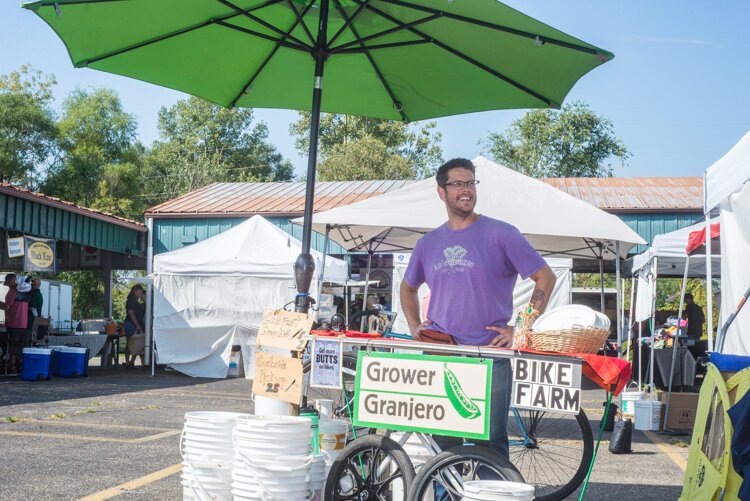
But Broadbent, a former Bank Street Farmers’ Market manager for four seasons and a market regular, says he doesn’t mind because his new business, The Bike Farm, combines his two greatest passions, biking, and agriculture. As a progressive agri-service, The Bike Farm offers home and business compost pickup (or market drop-off) and soil amendment delivery when the composting process is complete.
So far Broadbent has 22 clients with room for 20 or so more, in addition to serving several businesses, including Mamaleelu Cold Brew and Water Street Coffee Joint.
“The market is where I want to be on Saturday or any market day,” says Broadbent. “I wanted to increase composting and I wanted to start doing that by bicycle, which is another passion of mine.
“I can get to market. I might not have any fruits or flowers or plants to sell right now, but the soil is the material I want to be growing in. Through composting, I’m finding a way to build up and add more nutrients to the soil, while making our food waste a little tighter in this community.”
Broadbent’s intended clientele are people who have an interest in composting, but may not have the time or the space.
“We have a good garden in the yard next door and I’ve built a California three-bins system. So the idea is that people who want to participate can keep their food waste out of the landfill to be repurposed and hopefully put back into the growing needs of our community as an amendment for their homes and their beds or for other growers.”
Right now, that means that Broadbent will schedule home pickups of scraps weekly (usually Thursdays or Fridays) for $25 a month. Customers can also drop off a bucket of scraps at the market. Currently, he accepts vegetable and fruit peels, tea bags, and egg shells, but doesn’t have the capacity yet to take garden brush, which he hopes to be able to collect in the future. He would also like to participate in the “greening” of public events through composting.
For Broadbent, with the alarming state of the climate crisis, aiming to achieve carbon neutral (no use of carbon) sets the bar too low. “I’m looking for ways to sequester more carbon back into the ground and challenge myself and others to actually be carbon positive rather than carbon neutral or carbon negative,” he says.
His idea for a composting business came from what he perceived as a need in the community, as well as his desire to work with the soil while seeking land for an eventual urban farm. Last year, farmers market patrons were surveyed and 30 percent responded that they wanted a compost drop-off at the market, says Broadbent.
As a member of the Kalamazoo Valley Community College’s pilot community farm incubator program facilitated by Remi Harrington, Broadbent is making connections and learning about agricultural business development. After spending last year as a market representative traveling to organic farms around the state, Broadbent says he is happy to now be behind the handlebars versus the steering wheel.
“Thankfully the transmission died on my car, which puts me back where I want to be so I have no choice but to ride. I’ve done it before and people I know are doing it in town, and certainly people who don’t have cars have done it, and survived.”
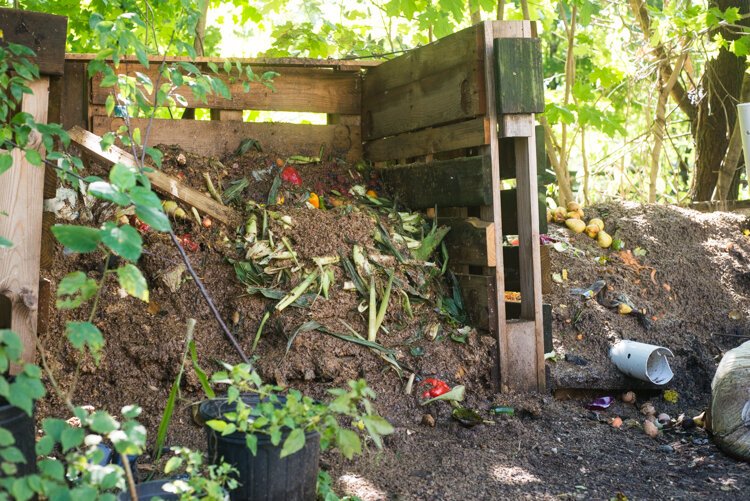
While he collects and creates compost, he is part of a growing number of eco-friendly entrepreneurs who want to employ some progressive agriculture methods as he seeks space within the city for an urban farm.
“Part of what I want to become is an active farmer, grower and curator of high-quality fruits and vegetables over the long term,” says Broadbent. “Historically businesses that do that have been outside the city, but I’m sick of driving. I’m trying to do that in a space that is bike-able.”
Old fashioned ice cream parlor on the road
If you’ve been to the Bank Street Farmers’ Market in the summer, to a Friday afternoon Lunchtime Live or to any Vine or citywide festivity, such as National Night Out, you’ve likely seen the guy with a bow tie and a large red tricycle with a cooler on the front.
He looks happy, he looks vintage, and he’s selling homemade, high-quality ice cream! He’s Ken Quayle, owner, and operator of Red Tricycle Ice Cream. As a mobile business, Quayle says his portable business is more closely related to a food truck than to a traditional “brick and mortar” ice cream parlor.
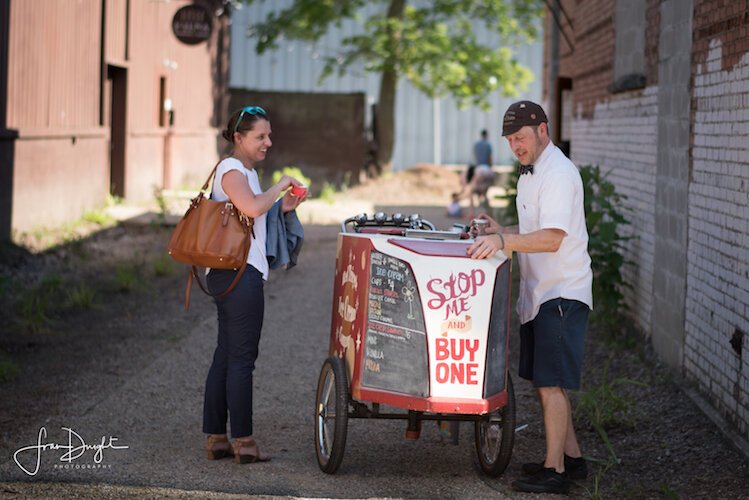
“There’s something really cool about kids knowing me as the ice cream man,” says Quayle, who first started his business in Madison, Wisc., while recuperating from a shoulder injury. He wanted to build a cargo bike to sell ice cream and quickly found one on Craigslist, which he purchased and rehabilitated in a friend’s garage. He then sold ice cream sandwiches made by Sassy Cow, a local dairy, and began doing events in Madison.
After moving to Kalamazoo eight years ago, he learned about the Can-Do Kitchen while working at the People’s Food Co-op and began making his own small-batch high-quality ice cream to sell, which he has been doing for the past four years.
For those who know ice cream, Quayle used the highest percentage of butterfat (16 percent) for his base, “so it’s ultra-creamy and super delicious,” he says. He also uses local ingredients from area farmers for flavors such as salted caramel, dark chocolate (with a hint of coffee), strawberry buttermilk, fresh mint chip, and his signature flavor, rhubarb streusel. “It’s a good challenge just keeping up with flavors,” says Quayle, who loves to invent new ones. “It’s one of those industries where everyone wants that best, new crazy flavor.”
Over the last few years, business has been growing. Red Tricycle is often rented for weddings and graduations, and participates at Art Hops, store open houses and other festivities. While the bike was what first got Quayle interested, perfecting the ice cream is what keeps him going.
“It’s mostly been about trying to have a really premium product that is made as locally as possible with people who have a hand in it,” Quayle says. “It makes a difference when people get it that way.”
And keeping it charming is important, too. “I’m kind of a vintage guy anyway,” says Quayle. “There’s a customer service piece and an experience that goes along with the bow tie that you don’t really get at other ice cream places. And it looks good for pictures.”
To find out more about Red Tricycle for its next event or rental, check out the website here.
Two pedals good, four wheels bad: Kzoo Swift keeps bikes on the road
As a lifelong bicyclist, Ryan Barber was drawn to purchasing used bikes, fixing them, and then re-selling them on Craigslist. “Bicycle flipping was my side thing,” says Barber. When he came across a pedicab (essentially a bike taxi) for sale in 2010, he offered to trade his moped for it.
He didn’t realize the cab’s business possibilities until people kept asking him for rides, which inspired him to start a pedicab business while still fixing and selling bicycles.
Soon the bike flipping business took over so Barber retired the pedicab, and in 2013, he opened Kzoo Swift, selling and repairing vintage and used bicycles on the corner of Forest and South Westnedge. As his business grew, he moved his storefront to 1305 S. Westnedge, and now has added several lines of new bikes to his stock.
“If you do what you love, you inherently feel like you don’t work,” says Barber, who was standing next to a bike that was older than he is but has been rebuilt to last another 30 years.
The motto behind Kzoo Swift is “One less car on the road.” In that vein, Barber says he aims to be your “everyday Joe Blow bike shop,” one that doesn’t intimidate customers with high-end prices.
“We wanted to give people an option to buy used bikes that didn’t need a lot of work done to them,” says Barber. “They don’t get sticker shock like they might at another bike shop or buy junk from a box store. They don’t have to wear spandex.”
Bicycling “is not only a niche and a hobby thing to do, it’s a way to get to school, to get to work, to get to your girlfriend’s house,” says Barber. “People build a relationship with their bike. It’s really cool to build a bike and then see people creating a relationship with it.”
And Barber has the opportunity to see that bike and customer relationship grow. As an avid bicyclist himself, he often runs into customers around Vine. He totes his two-year-old son who knows to hit the bell to say when he sees another bike coming. “He loves that. That type of connection is so cool,” says Barber, who sometimes recognizes a bike from his store, when he’ll ask, “How’s that Schwinn treating you?”
Doing business in the Vine neighborhood where he lives adds a special dimension to what he does, Barber says.
“You get to know your neighbors. You get to know your neighborhood. We offer something that’s a little different and the Vine neighborhood needs that.”
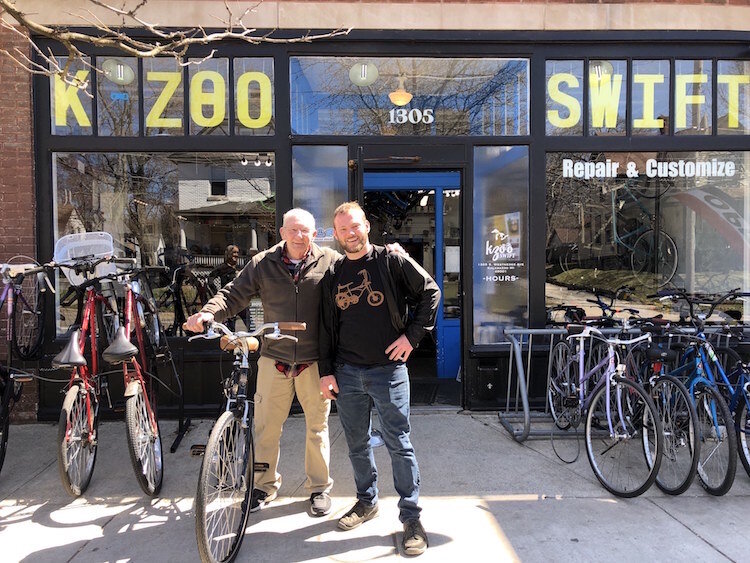
Bicycle business on the grow
With rising awareness by the city on the importance of creating an infrastructure that supports bicyclists, as well as the growing alarm about the climate, Broadbent, Quayle, and Barber all say they won’t be surprised to see more bicycle business in the future.
“We’re seeing more of these businesses around bicycles, which is this human-powered way, both ancient and reliable, to go from place to place,” says Broadbent. “Bicycling is an appropriate scale for how humans should be moving around rather than burning all the carbon resources.”
Barber agrees. “Bikes are one of the fundamental inventions of mankind. They have really transformed the way transportation was available to the masses in an individual form.”
“I’ve been a biker my whole life,” says Quayle, “and I’ve always appreciated the freedom that I’ve gotten from a bike and the added health benefit to get some kind of exercise while I’m going to someplace or getting something. That’s what got me into (the ice cream business), my love of bikes and pedaling.
“In other cities, there’s no end to bike businesses—biscuit bikes and pie bikes. Who would not want to get biscuits and gravy from someone on a bike?”

